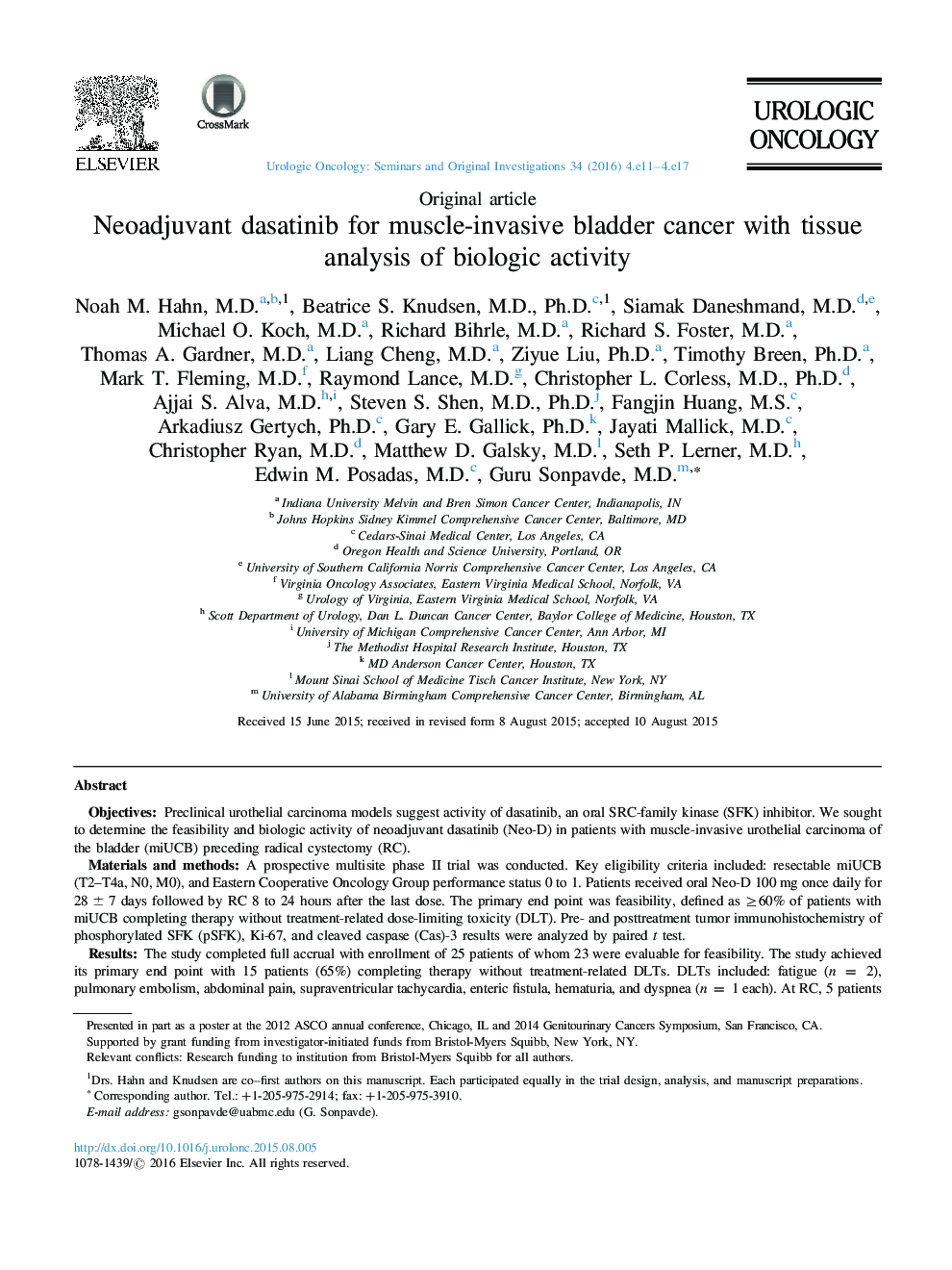| Article ID | Journal | Published Year | Pages | File Type |
|---|---|---|---|---|
| 3999682 | Urologic Oncology: Seminars and Original Investigations | 2016 | 14 Pages |
•Dasatinib, a Src inhibitor, was feasible as neoadjuvant therapy for bladder cancer.•Overall, significant Src pathway inhibition was seen in tumor tissue.•Cell proliferation and apoptosis were unaltered overall.•Src inhibition appears ineffective in unselected bladder cancer patients.•The neoadjuvant trial paradigm may complement drug development.
ObjectivesPreclinical urothelial carcinoma models suggest activity of dasatinib, an oral SRC-family kinase (SFK) inhibitor. We sought to determine the feasibility and biologic activity of neoadjuvant dasatinib (Neo-D) in patients with muscle-invasive urothelial carcinoma of the bladder (miUCB) preceding radical cystectomy (RC).Materials and methodsA prospective multisite phase II trial was conducted. Key eligibility criteria included: resectable miUCB (T2–T4a, N0, M0), and Eastern Cooperative Oncology Group performance status 0 to 1. Patients received oral Neo-D 100 mg once daily for 28±7 days followed by RC 8 to 24 hours after the last dose. The primary end point was feasibility, defined as≥60% of patients with miUCB completing therapy without treatment-related dose-limiting toxicity (DLT). Pre- and posttreatment tumor immunohistochemistry of phosphorylated SFK (pSFK), Ki-67, and cleaved caspase (Cas)-3 results were analyzed by paired t test.ResultsThe study completed full accrual with enrollment of 25 patients of whom 23 were evaluable for feasibility. The study achieved its primary end point with 15 patients (65%) completing therapy without treatment-related DLTs. DLTs included: fatigue (n = 2), pulmonary embolism, abdominal pain, supraventricular tachycardia, enteric fistula, hematuria, and dyspnea (n = 1 each). At RC, 5 patients (23%) had
